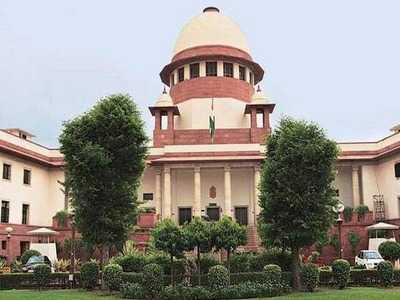
New Delhi [India], April 1 (ANI): The Supreme Court on Tuesday refused to entertain a plea challenging the validity of a provision of the Places of Worship (Special Provisions) Act, 1991, which preserves the character of religious places as they existed on August 15, 1947.
A bench of Chief Justice of India Sanjiv Khanna and Justice Sanjay Kumar granted the petitioner liberty to file an application in the pending challenge to the Act.
"We are not inclined to entertain the PIL under Article 32. It's open to the petitioner to file an application," said the bench.
On February 17, the CJI took exception to the many intervention applications filed in the case and similar writ petitions either challenging the impugned Act or seeking implementation of the Act and said there should be a limit to such applications.
It had then passed a short order clarifying that all fresh petitions in the case would stand dismissed, but these petitioners would have the liberty to file applications raising new grounds in the pending matter.
The fresh petition heard today also sought the top court's direction to allow courts to pass appropriate orders ascertaining the original religious character of a place of worship.
The petitioner, Nitin Upadhyay, a law student, has challenged section 4(2) of the Act, which barred proceedings to change the religious character and prohibited the filing of fresh cases for the same.
"The Centre has transgressed its legislative power in barring the judicial remedy, which is a basic feature of the Constitution. It is well established that the right to judicial remedy by filing suit in a competent court cannot be barred, and the power of courts cannot be abridged, and such denial has been held to be violative of basic features of the Constitution, beyond legislative power," the petition stated.
It added that the Act mandated preservation and maintenance of the religious character of places of worship without barring changes in the "structure, edifice, construction or building" in these places.
"Structural change is permissible to restore the original religious character of the place," the petitioner argued.
The petition further submitted that the Act did not prohibit any scientific or documentary survey to ascertain the religious character of the place, the plea said.
The apex court is seized of several petitions pertaining to a challenge to the Act and strict implementation of the Act. The petitions challenged the constitutional validity of Sections 2, 3, and 4 of the Places of Worship (Special Provisions) Act 1991, which they said violates the principles of secularism and the rule of law, which are integral parts of the Preamble and the basic structure of the Constitution.
Daughter of the Kashi Royal Family, Maharaja Kumari Krishna Priya; BJP leader Subramanian Swamy; Chintamani Malviya, former Member of Parliament; Anil Kabotra, a retired army officer; advocates Chandra Shekhar; Rudra Vikram Singh, resident of Varanasi; Swami Jeetendranand Saraswati, a religious leader; Devkinandan Thakur Ji, resident of Mathura and a religious guru and advocate Ashwini Upadhyay among others have filed the pleas in the apex court against the 1991 Act.
The sections violated several fundamental rights, including the right to equality and the freedom to practice religion, said the pleas.
Indian National Congress Party, CPI(ML), All India Majlis-e-Ittehad-ul-Muslimeen (AIMIM) head Asaduddin Owaisi, Jamiat Ulama-I-Hind, India Muslim Personal Law Board, Committee of Management Anjuman Intezamia Masjid, which manages the mosque in the Gyanvapi complex, and Shahi Idgah mosque committee of Mathura--among others--had also filed applications in the top court against the petitions challenging the validity of certain provisions of a 1991 law.
They challenged the petitions filed by some Hindu petitioners, saying that entertaining the pleas against the Act would open the floodgates of litigation against countless mosques across India. Filing an intervention application in the case, they sought dismissal of pleas challenging the Places of Worship Act.
On December 12, the top court restrained all courts across the country from passing any effective interim or final order, including orders of survey in pending suits against existing religious structures.
It had also ordered that no fresh suits can be registered over such claims while the court is hearing pleas challenging the Places of Worship (Special Provisions) Act, 1991.
The Places of Worship Act prohibits altering the religious nature of any place of worship and imposes strict penalties for violations. However, the dispute relating to the Ram Janmabhoomi-Babri Masjid at Ayodhya was kept out of its purview. (ANI)